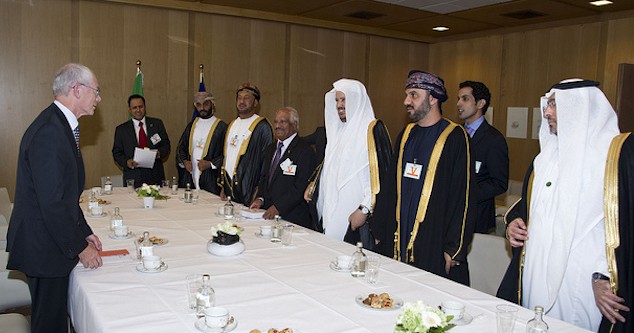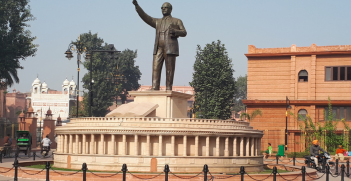Ongoing Rift in the GCC Unlikely to Lead to Disintegration

While the Gulf Co-operation Council faces unprecedented challenges, these are not, as yet, significant enough to threaten the existence of the organisation.
Background
The Gulf Co-operation Council (GCC) is the only institution that brings together the six oil-rich states of the Arabian Peninsula. It has helped to ensure the stability of the region, since its inception in 1981. Two pressing challenges, however, could undermine the effectiveness, and the very existence, of the organisation. The first challenge arises from the tensions between Saudi Arabia, the United Arab Emirates (UAE) and Bahrain on one side and Qatar on the other. The second stems from the domestic leadership transitions, faced by several member states, which could disrupt the regional balance.
Comment
A key item on the agenda at the latest meeting of the GCC, held in Jeddah on 30 August, was the resolution of tensions between Saudi Arabia, the UAE, Bahrain and Qatar. These tensions arose in November 2013 and are linked to a Qatari foreign policy that is perceived by many members of the GCC as damaging to their interests. Doha has lent support to Islamist groups, such as the Muslim Brotherhood, which is a designated terrorist organisation in several other member states. There is, furthermore, a degree of suspicion that Qatar is, knowingly or otherwise, funding the actions of the Islamic State (IS). Qatar has, however, vehemently denied all allegations that it is funding IS.
The three GCC members remain unconvinced that Doha has implemented the Riyadh Agreement that it signed in April. The agreement stipulates that member states must work to support the stability and security of all GCC members. In practice, according to the Saudis, Emiratis and Bahrainis, this means that Qatar must cease its support for the Muslim Brotherhood and rein in its Al Jazeera media channel, which continues to present President Sisi’s rise to power in Egypt as a coup. A committee was appointed to address the grievances presented by the three members. It has, however, not reduced their concerns. Since previous actions to pull Doha into line, such as withdrawing diplomats from Qatar, failed to elicit any policy change, stronger measures could be required. Some commentators have speculated that continued Qatari intransigence could lead to that country’s expulsion from the GCC.
This, however, would be an extreme reaction to the current impasse and would probably create more problems than it would solve. If it found itself regionally isolated, Doha would be more likely reach out to other regional powers, such as Iran or Turkey. Such an outcome would not be in the interests of the council. Furthermore, Qatar would not benefit from maintaining its relationship with the Muslim Brotherhood at the expense of its relationship with the GCC. It will probably cease its support for the Islamist movement before it severely damages its relationship with the council.
In addition to the diplomatic dispute, a number of the GCC states are undergoing uncertain domestic transitions. As the hegemonic power in the organisation, the political transition within Saudi Arabia remains the most significant factor in the future workings of the GCC. The health of Sultan Qaboos, the Omani leader, has also recently been called into question. Sultan Qaboos has not nominated an heir and has no children, leading to speculation about the leadership, at a time when the country is seen to be moving closer to Iran.
The diplomatic row shows that the GCC has entered a fragile period of its existence. Failure to resolve this issue would present the council with a significant problem. If Doha fails to comply with agreements, member states must increase their pressure on it or face the prospect of their agreements becoming unenforceable. Increasing pressure, however, threatens to tear the GCC apart, leading to a greater prospect of regional instability. Qatar will continue to pursue its own interests to the chagrin of regional powers, but is unlikely to be ejected from the council, as this serves no one’s interests. The council faces increased uncertainty as major change sweeps the region; domestic leadership changes will only compound this uncertainty. The challenges facing the GCC are significant, but they do not yet pose a large enough threat to lead to the disintegration of the organisation, especially when the common external threats facing the Gulf are taken into consideration.
Mervyn Piesse is a Research Analyst in the Indian Ocean Research Programme.
This article was originally published by Future Directions International. It is republished with permission.





